22+ Sample Theater Proposals
-
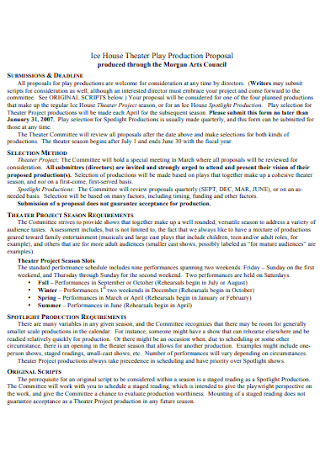
Theater Play Production Proposal
download now -
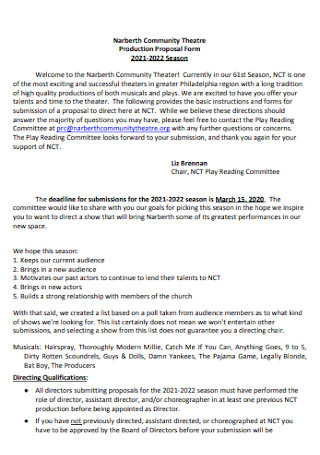
Theatre Production Proposal Form
download now -
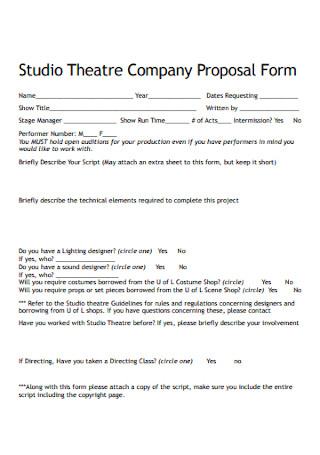
Studio Theatre Company Proposal Form
download now -
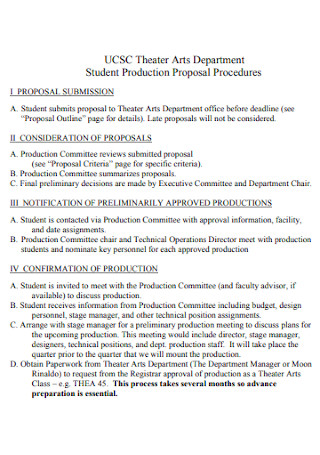
Theater Arts Department Proposal
download now -
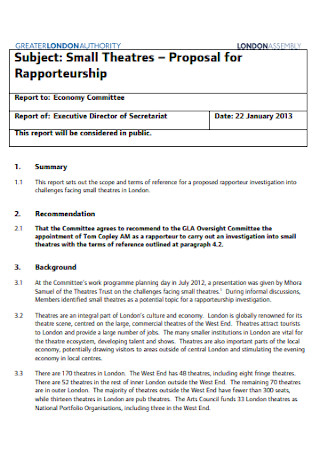
Small Theatres Proposal
download now -
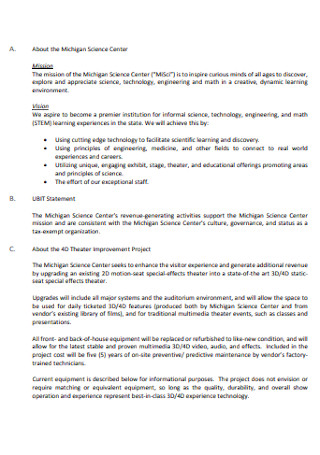
Theater Design Proposal
download now -
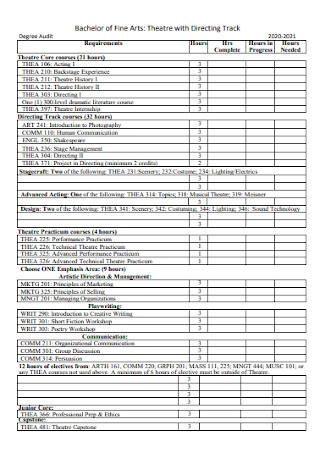
Theatre with Directing Track Proposal
download now -
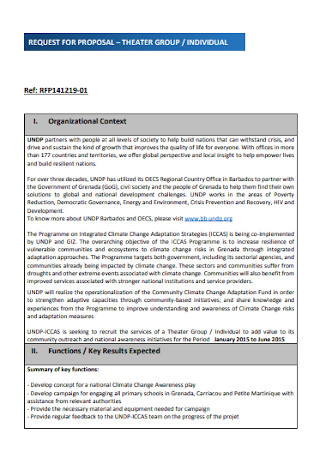
Theater Group Proposal
download now -
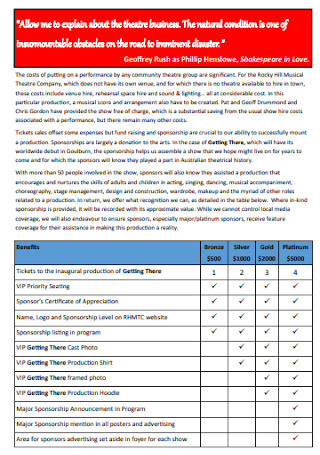
Theater Sponsorship Proposal
download now -
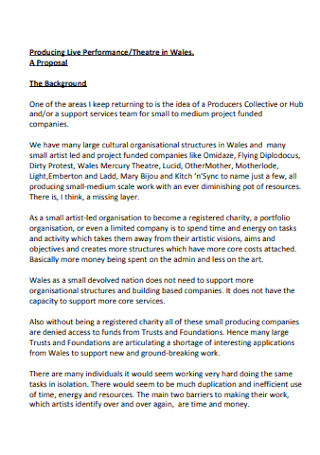
Theatre Live Performance Proposal
download now -
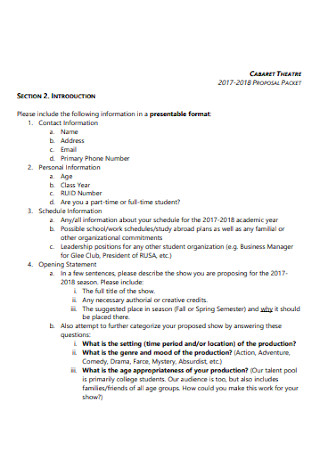
Formal Theatre Proposa
download now -
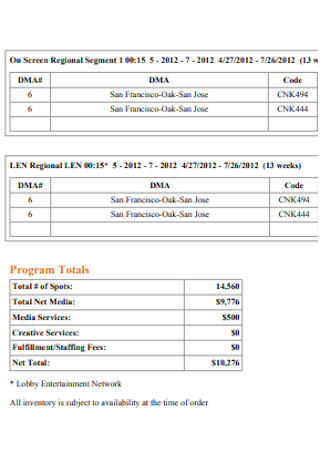
Theatre Advertising Proposal
download now -
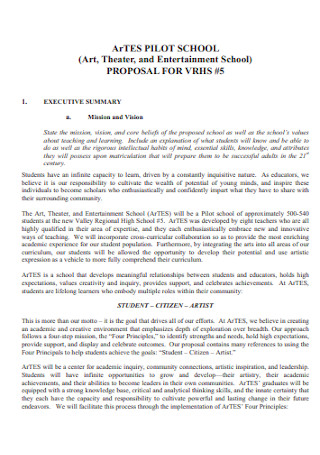
Theater and Entertainment Proposal
download now -
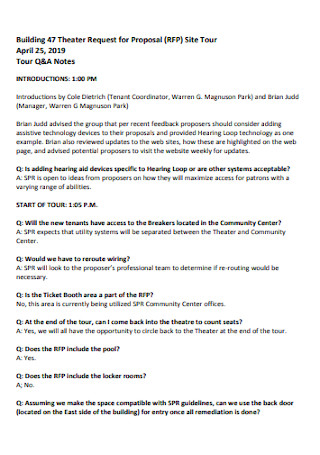
Building 47 Theater Request for Proposal
download now -
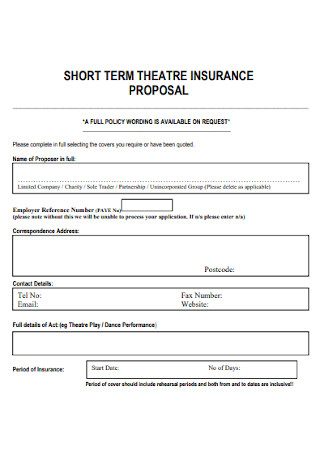
Theater Insurance Proposal
download now -
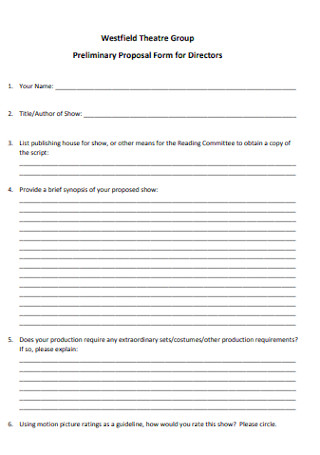
Theatre Group Preliminary Proposal
download now -
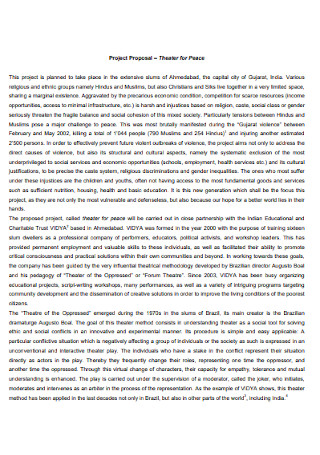
Standard Theater Proposal
download now -
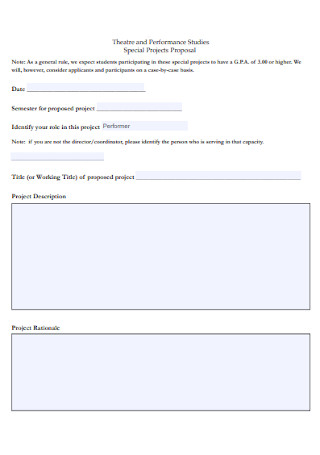
Theatre Special Projects Proposal
download now -
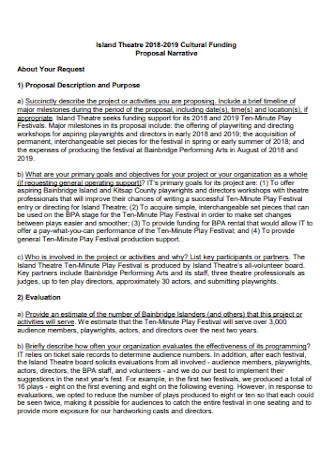
Theatre Funding Proposal
download now -
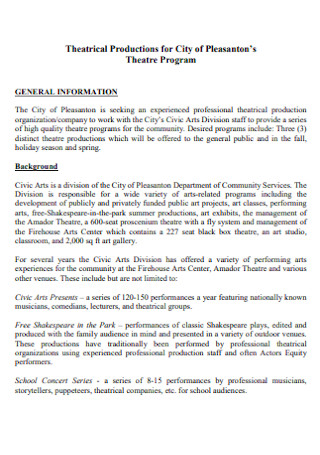
Theatre Program Proposal
download now -
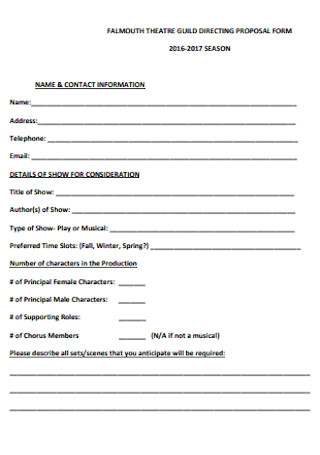
Theater Guild Directing Proposal
download now -
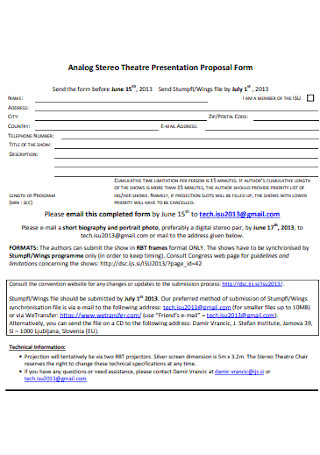
Theatre Presentation Proposal
download now -
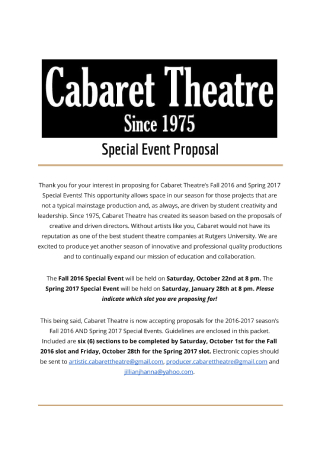
Special Theater Event Proposal
download now
FREE Theater Proposal s to Download
22+ Sample Theater Proposals
What is a Theater Proposal?
Different Types of Theater Proposals
Benefits of a Theater Proposal
Basic Components of a Theater Proposal
How to Create a Theater Proposal
FAQs
What are the fundamental elements of the theater proposal?
What are the significant roles in theater production?
What is the most essential point of setting up a good theater production?
What are the main elements of a proposal?
What are the major genres in theater?
What is a Theater Proposal?
A theater proposal is a significant document that demonstrates clear and logical goals, objectives, and plans written by an amateur or professional stage play director or producer with the purpose of providing sophisticated and thought-provoking theater production plays for school, local theater festivals, and other drama and theater events in the society.
According to a survey conducted by Nielsen Scarborough in spring 2016, over 47 million Americans had attended a live theatre event within the past month and around 73.5 million people had visited a performance art event in 2013. Thus, if you are currently working on a theater play to ignite inspiration and to entertain the people, the first thing you need to achieve is preparing an effective theater proposal for your stage play.
Different Types of Theater Proposals
Design, image, sound, light, gesture, movement, and voice are fundamental principles and techniques for theater production. If you are a stage director or producer, your main role is in conceptualizing, devising, rehearsing, and designing various processes for theater plays. But, what kind of theater proposals that you can work on? Below are different types of theater proposals that you may consider carefully:
1. Musical Theater Proposal
Les Misérables, The Phantom of the Opera, Legally Blonde, My Fair Lady, The Sound of Music, Into the Woods, Mamma Mia, The Lion King, and many others are some of the world-class musicals which are well-loved by many people across many countries and lands. Musical theater focuses on a combination of songs, spoken dialogue, acting, and dance with the aim of conveying the story and varying emotions through words, music, movement, and technical aspects of the stage play. Structuring an effective proposal for musical theater is a beneficial way to get your theater play approved by the management or committee.
2. Historical Play Proposal
One of the brilliant examples of historical plays is William Shakespeare’s Caesar and Henry IV as it follows real life events with the use of historical figures in Shakespeare’s own time. If you want to portray some notable events and lifestyle of the people from the past, it is essential that you also create an appealing proposal for your selected historical play.
3. Comedy Play Proposal
Black comedy, malapropisms, and others are some of the different kinds of themes in a comedy play. If you want to direct and produce a theater play with a happy ending or something that depicts a message with fun and entertaining elements to the viewers, then we recommend that you create a compelling proposal for your photography project. In this way, you can get some potential clients who want your services.
4. Solo Theater Proposal
Whether you want a biography, comedy or tragedy in a stage play, the solo theater could have any of these genres. It is a type of theater when one person narrates stories to the audience and acts according to them. Writing a striking proposal for a solo theater will help in enticing the interest of the audience in watching solo theater plays.
Benefits of a Theater Proposal
Other than inviting the reader to accept the proposed idea or plan of a certain theater play, it can also help many novice stage directors and producers to gain respect and acknowledgement of their work, as well as boosting their exposure from notable individuals, companies, and organizations in the entertainment and theater industry, especially the general public. Below are some of the benefits of using a compelling theater proposal:
1. Better Comparison
When you construct a proposal for your theater play, you enable key decision makers or the theater committee to make better comparisons of prices, processes, and predicted outcomes of the stage play. It helps them to pay attention to specific parts of the theater play which may vary depending on the prices. By utilizing this accurate data, it will support them in developing more informed and objective decisions when it comes to promoting, and advertising theater plays.
2. Clear Vision
The primary objectives, main purpose, production processes, envisioned results, and synopsis of a theater play are written in a theater proposal. This guarantees both sides in coming to a decision of an agreement regarding what the theater play will present. It affirms to the prospective client, investor, or management that the stage director or producer of the theater play has a clear vision concerning the scope of the theater play. In this way, it can promote harmonious agreement to one another because of the trust and integrity between the ones involved in the project.
3. Sustain Credibility and Showcase Efficiency
A theater proposal also plays a significant role in sustaining credibility. It must convey to the prospective client, or investor that the stage director or producer is reliable and efficient in accomplishing the entire theater play and fulfilling expectations. So, consider that you specify potential risks or problems in the theater proposal and how you and your production team would triumph over those challenges and obstacles in producing the theater play.
4. Reveal Planning Process for the Theater Production
Writing a project proposal for your theater play appears to be useful in revealing the planning process for the theater production. Demonstrate that you have a systematic plan in order to fully execute your theater play. If you receive an approval from your prospective clients or investors, this proposal will be utilized in accomplishing the theater production timelines, budget, and resource scheduling for the contract.
Basic Components of a Theater Proposal
In this section, you will learn how to craft a well-written theater proposal so that you are able to capture the interest of the readers of your proposal like your potential clients, investors, funders, and many others. However, a proposal has different components. Include the following elements for you to create an exceptional document:
How to Create a Theater Proposal
Create a comprehensive and striking theater proposal that will assist you in your collaboration and participation along other hopeful theater play directors, producers, stage play managers, scriptwriters, and artists in your community. In this matter, we suggest that you follow the simple steps below while freely using one of our theater proposal templates in this article:
Step 1: Write a Compelling Cover Letter
First, you need to write a simple and compelling cover letter. Tell your reader about your professional experience in theater production and explain the main idea or subject of your theater proposal. Specify your definite goals and objectives for your theater play. Explain why your stage play is significant and meaningful, as well as the reason why you are capable of directing, producing, or designing the stage play. Also, inform them on the exact season you prefer to set the theater play.
Step 2: Determine the Target Audience
One of the integral aspects that you need to consider in creating an effective theater proposal is to determine the target audience of your stage play. Set up a careful discussion with your drama and theater department or your theater production team about their personal ideas, comments, and suggestions for the theater project. Conduct a research about the needs and preferences of the target audience and consider the things they prefer to watch in the stage play. In this way, you are able to generate some suggestions or introduce some new concepts to your team. Then, describe how the theater program would entice the audience.
Step 3: Include a Brief Synopsis of the Theatre Play
Julie Klassen said: “By the time I begin writing, I have a fair idea of where the story will begin, the main conflicts, and the basic ending point. But that still leaves plenty of room for changes and discovery along the way.” Your proposal should include a simple and engaging brief synopsis of your theater project.Thus, describe your original thoughts, and the general design of the theater play. When writing this section, you must deeply consider your readers. Then, add some reliable information as well.
Step 4: Provide the Budget and Estimated Production Timeline
Create an estimate of the financial budget of the theater play that you need in order to initiate the production of the stage play. Indicate a run-down of the technological expenses, theatre production pieces, and other components involved in the theater play. Then, provide crucial information regarding the estimated production timeline of your theater program. Present the accurate dates by which each stage of the theater play will be concluded.
Step 5: Outline the Significant Roles and Responsibilities
Dietrich Bonhoeffer said: “Action springs not from thought, but from a readiness for responsibility.” Create a brief and structured personal resume and background of individual key theater members such as the theater producer, stage director, and scriptwriter to outline the significant roles and responsibilities in your theater group. Include some resumes of your theatre cast and other remaining theatre staff as well such as the stage production managers, musical director, costume director, set designer, lighting director, sound designer, prop designer, etc.
Step 6: Prepare Samples of Completed Theater Plays
The last part in your theater proposal is to prepare some samples of your completed theater production plays connected to the stage play you are currently working on. Include some brief and clear descriptions of other theater plays you have accomplished through attaching some links or video clips from your online portfolio, website, business social media page, or shared cloud drive.
FAQs
A theater proposal should have a concise statement of introduction about the stage play. Then, include some information of the theater production team while describing the roles and responsibilities of the corresponding team members. Explain the scope of the production. After that, you can add more details to further clarify the content and essence of the theater play.
What are the fundamental elements of the theater proposal?
The significant roles in theater production are stage directors, musical directors, dance choreographers, set designers, scriptwriters, costume designer, lighting director, and audio-visual team.
What are the significant roles in theater production?
The most essential point of setting up a good theatre production is the intriguing factor, making a hit with the audience. The stage play needs to draw the attention of the people and find the characters great, and charming because of their fascinating character and dazzling charisma.
What is the most essential point of setting up a good theater production?
The main elements of a proposal are technical, management, and financial budget. The technical section has a target of convincing the reader that the service provider is well aware of the necessities of the client and develops an innovative solution that can remarkably deliver advantages. Then, the management part gives the description of main activities and tasks, deliverables, schedule of the project, etc. While the financial budget simply informs the prospective client regarding the total cost of the project.
What are the main elements of a proposal?
The major genres in theater plays are comedy, tragedy, tragicomedy, and melodrama. Comedy is a genre that focuses on making the viewers laugh and the story appears to be light and has a happy ending. Tragedy is a genre that contains scenes depicting murders, deaths, insanity, loneliness, and pain. Tragicomedy is a fusion of tragedy and comedy. Melodrama is a genre that aims on awakening the emotions of the viewers through stereotypical stories.
What are the major genres in theater?
According to a statistical report released last 2018, the figures reveal a combined audience of over 34m and ticket revenue of nearly £1.28bn, from a total of 62,945 performances over the course of the year. With the continuous rise of drama and theater productions in the United States, United Kingdom, and other countries, there are many opportunities for you and your theater production team to showcase your creativity and inspire many people. If you aspire and dream to set up a Broadway-level theater play, you need to work hard in directing and producing enthralling theater plays. Additionally, you must be able to create a compelling and structured theater proposal. You can get a free theater proposal template today to start and fulfill your goals in theatre production.
